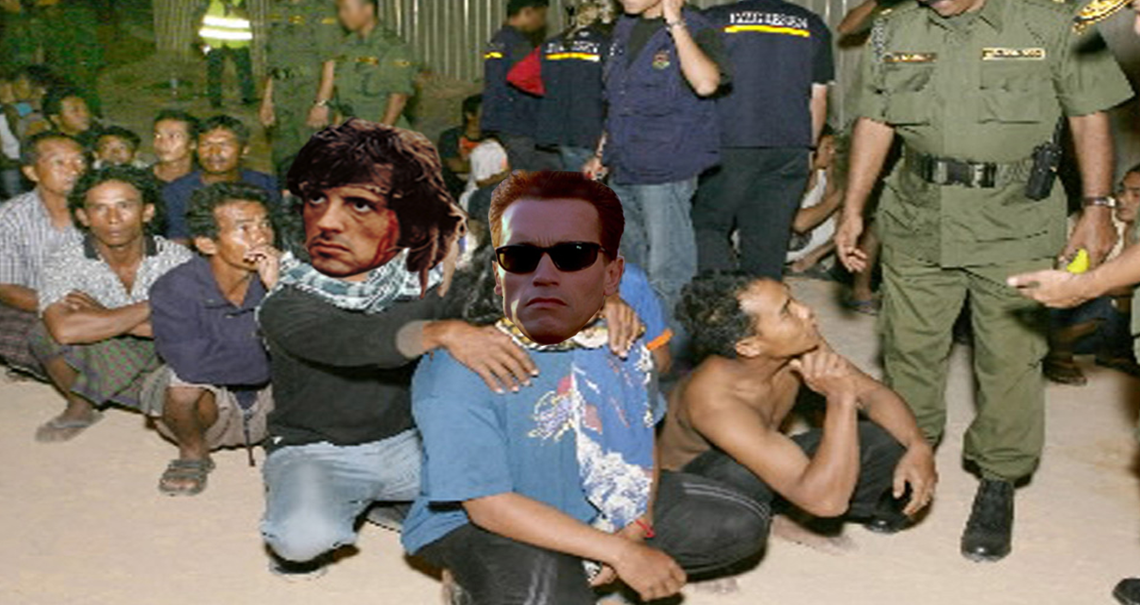Foreign countries are using Port Klang as a dumping ground to offload containers of rubbish
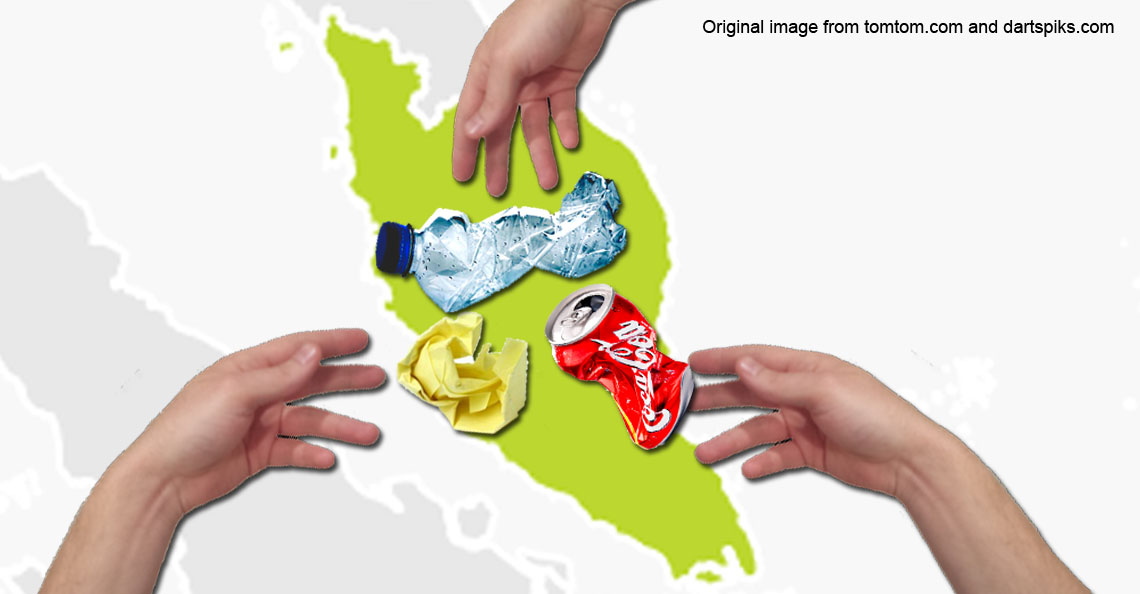
- 2.0KShares
- Facebook1.9K
- Twitter9
- LinkedIn15
- Email15
- WhatsApp75
Imagine if the world had a portal into another dimension where we could get rid of our Amazon delivery boxes, Coca cola cans, old sofas, cockroaches, roadkill and other undesirables.
A place we can treat as a dumping ground, with ZERO adverse effect to the Earth’s environment and zero inter-dimensional effect on whatever the heck other life forms ‘out there’ so to speak. A place where the trash would automatically disappear once we dump it, so that we can continue to dump more stuff in!
How nice would that be? As it turns out there is such a tong sampah hooyay!!
And that tong sampah unfortunately…is Malaysia. 🙁 🙁 #sadreact
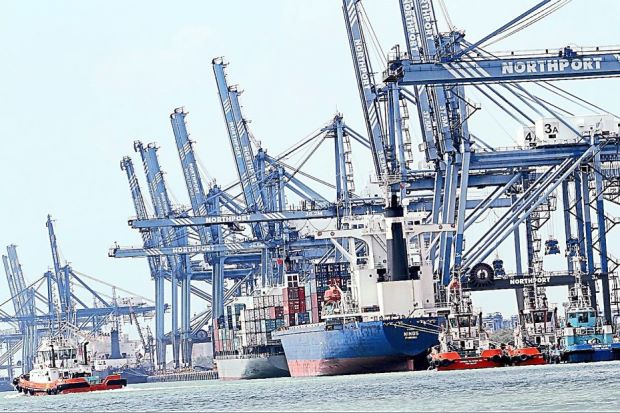
More specifically, that place is called Port Klang in Selangor. For some years, foreign countries have been sending containers, packed onto ships bound for Port Klang, where they unload them, then never come back for them. When Malaysian officers open them, what do they find? Kinder surprise? If only. It’s filled with disgusting, stinko RUBBISH.
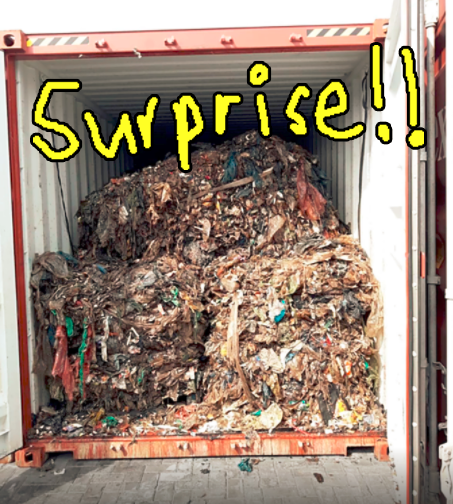
The rubbish include plastics, metals, e-waste, oily vehicle parts and scrap tyres, some of which are contaminated with hazardous chemicals. Last year, a Romanian ship tried to abandon 117 tonnes of toxic waste here, suspected to be arsenic and cadmium. Thankfully, the authorities smelled something fishy (not from the sea) and managed to stop the dumping that time.

You see, Port Klang is the 12th busiest container port in the world, receiving more than 10 million containers annually. Some of the containers contain legit stuff such as import and export goods, stuff we buy online 😛 , yadda yadda. Then every so often, rubbish. The port has become a hotspot for foreign countries particularly from Europe, to treat like a tong sampah.
Okla, Port Klang is not another dimension, just another country, but to some of these foreign countries like heckin’ Romania, it’s certainly far away enough for them not to care. But hello, earth to all these countries, WE’RE ON THE SAME PLANET which means you are equally destroying your home as much as ours! And yes, it will affect other life forms ‘out there’ – the life forms being Malaysians. As for the idea of the rubbish automatically disappearing once it’s dumped, well…
Yalar Malaysians have to clean it up la, what else
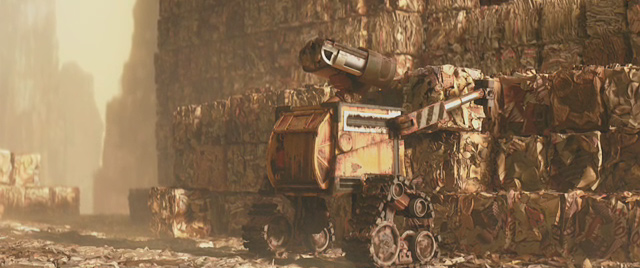
Before we go on, let’s make one thing clear – the transnational trade of contaminated waste is banned, therefore, what these countries are doing is called illegal dumping. This is actually classified by the United Nations as Environmental Crime. In spite of this, toxic waste is still exported from developed countries to developing countries. In the end, the burden from Western countries fall predominantly onto Africa, Asia, and Latin America.
Now we follow the smelly trail of the rubbish. After it reaches Port tong sampah Klang what happens? Malaysia has to clean it up of course! Port Klang Authority (PKA) General Manager Captain K. Subramaniam said that abandon cargoes are kept for a maximum of 4 months in case anyone comes to collect them.
But the storage cost over that span of time amounts to RM20 mil-RM25 mil, borne by PKA. If the owners collects them good. If not, they will be disposed after 4 months, which costs PKA an additional RM5,000-RM12,000 per container.
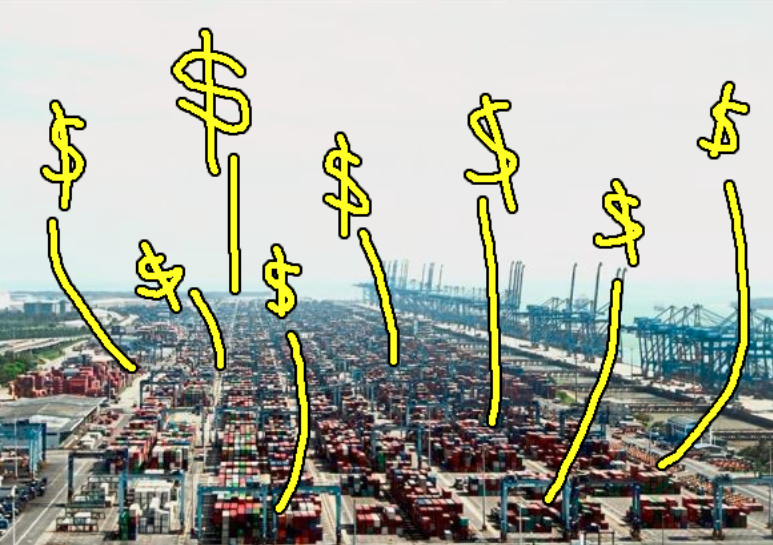
“The port authorities have to ensure that the containers are sealed properly and kept in a safe place. We need to monitor their conditions as well to ensure they don’t pose any hazard to the environment. All these additional costs are eventually absorbed by the ports and terminals without a way to recover.” – Capt Subramaniam told The Star
At its worst, Port Klang had 800 containers of waste, he added, but currently it’s down to 280 containers, whew. This chore is seriously the pits la. But of all places, why Port Klang?
As written in our previous article, the process of handling waste, especially toxic waste, is very expensive and tedious, so some countries get other people to get rid of it for them! Genius isn’t it? Yep, there are people who make money by getting rid of rubbish that no one wants (including the Italian mafia).
It’s important to note however, that there is a difference between regular waste and toxic waste. In 1995, Malaysia banned the import of toxic waste by foreign countries, called the Basel ban. Following that, we banned the import of plastic waste in 2007, which made many local plastic recycling companies upset.
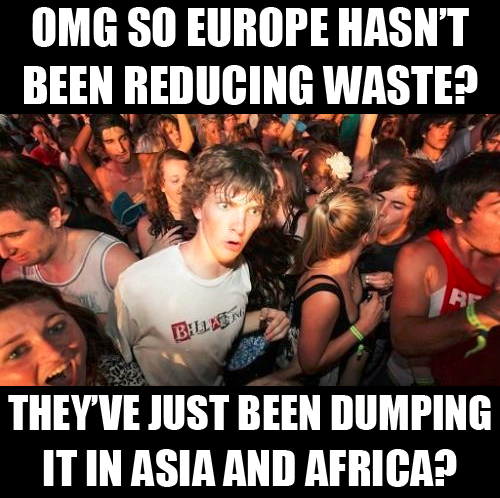
Foreign countries treat Malaysia like a tong sampah coz of our lack of enforcement
So Malaysia is only ONE OF the destination countries for illegal waste shipments, the UN confirmed. Other destination countries include Bangladesh, Vietnam, India, China, Hong Kong, Nigeria, Ghana and several African countries. In fact, before that jerk Romanian ship with the 117 tonnes of toxic waste set its sights on Port Klang, it attempted to unload in 3 other places:
“When Shanghai authorities discovered there was a problem during spot checks of the containers, they immediately ordered that the cargo be disallowed from being unloaded. Two months later, they ordered the cargo ship to leave. That cargo ship moved towards Hong Kong, and after stopping by at Hong Kong for one month, it departed for Macao’s port and planned to unload cargo, but similarly received directives to turn back and return towards Hong Kong.” – Malaysian Department of Environment, quoted by Oriental Daily

However there have been more horrific cases, such as the Khian Sea waste disposal incident of 1986. American ship Khian Sea was carrying 14,000 tonnes of waste ash, attempting to dump it in so many countries, including Singapore. In the end, when they couldn’t get permission to dock by anyone, they heckin’ dumped it IN THE SEA!
To be fair, some waste is brought by genuine shippers to be recycled, then end up abandoned due to unpaid freight charges by local consignees.
But the reason why we are targeted in the first place is because of weak regulations, Federation of Malaysian Freight Forwarders (FMFF) President Alvin Chua Seng Wah said. Even at the start of the toxic waste ban in 1995 by Malaysia, environmentalist Gurmit Singh saw cracks…”There is no teeth. Who is going to enforce the ban?” he said at the time.
“There have been a number of seizures of illegal shipments containing hazardous waste but the country [Malaysia] lacks important knowledge and a way to implement existing regulations to combat the illegal waste trade, and to repatriate illegal shipments.” – Ieva Rucevska, representative from GRID-Arendal, on news.grida.no
China on the other hand, has been fiercely clamping down on waste imports in recent times.
If we stop sampah ships from docking at the start, they won’t be able to leave their trash behind
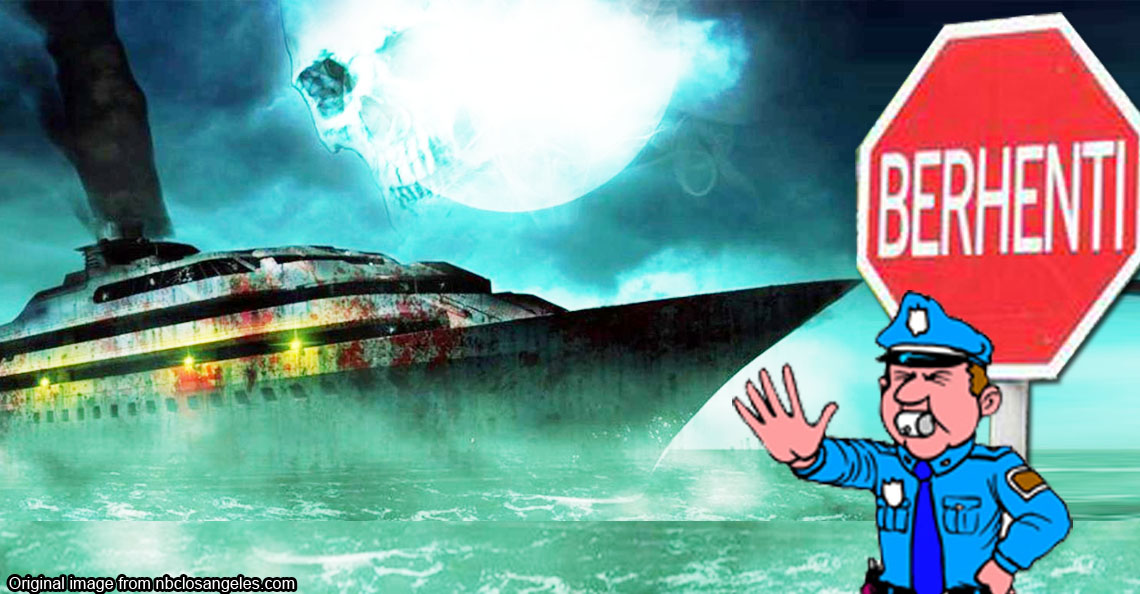
Both Capt Subramaniam and Alvin Chua agree that shipping companies must be responsible for their cargo and pretend dunno. It seems, some companies often use ignorance as an excuse to escape punishment.
“The laws are very clear but some of them choose to ignore them. I think enforcement is the answer to this. Right now, the shippers might get away with no penalty as there is no such regulations, so we have highlighted this matter to the Department of Environment (DOE) and National Solid Waste Management Department (JPSPN).” – Capt Subramaniam said
The FMFF also proposed to port authorities that ships bringing in sampah containers should be instructed to balik their country of origin and take their trash with them. As in don’t even allow them to dock and unload their cargo.
Additionally, the UN’s partner GRID-Arendal conducted a workshop for Royal Malaysian Customs officers to teach them how work with international networks, and how to spot suspicious shippers in early stages to stop them from docking at Port Klang at all – like how they managed to stop that Romanian ship.
Well, if all else doesn’t work, here are some creative ways to put sampah to good use – turn trash into an amusement park like in Uganda, turn it into roads like in India, or our favourite, turn it into energy like in Sweden. In fact, Sweden’s waste-to-energy system provides electricity to 260,000 homes! Not a bad idea right?
- 2.0KShares
- Facebook1.9K
- Twitter9
- LinkedIn15
- Email15
- WhatsApp75

